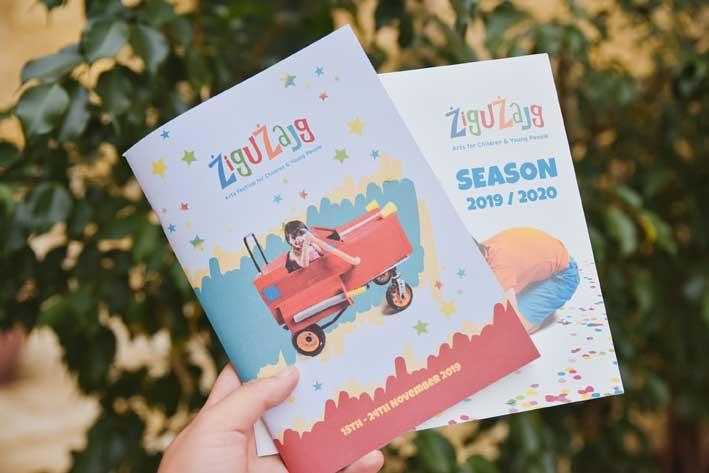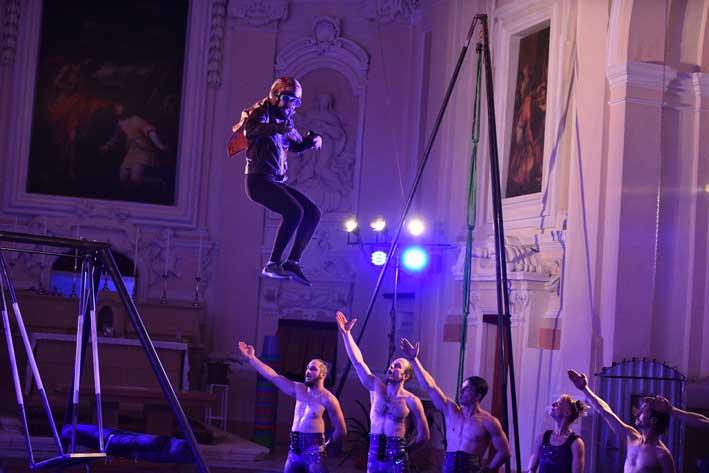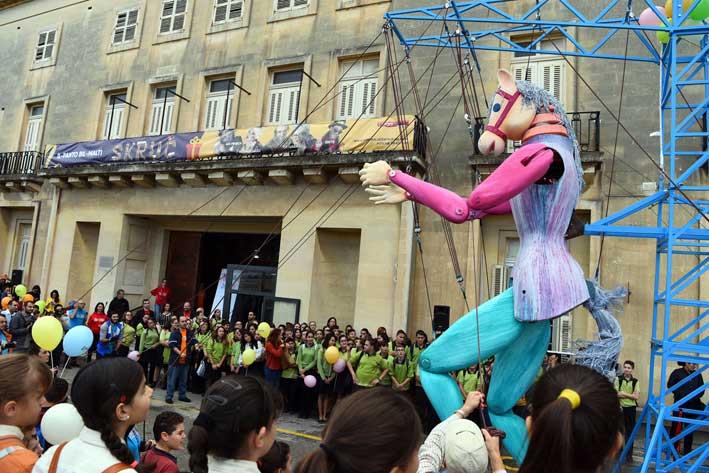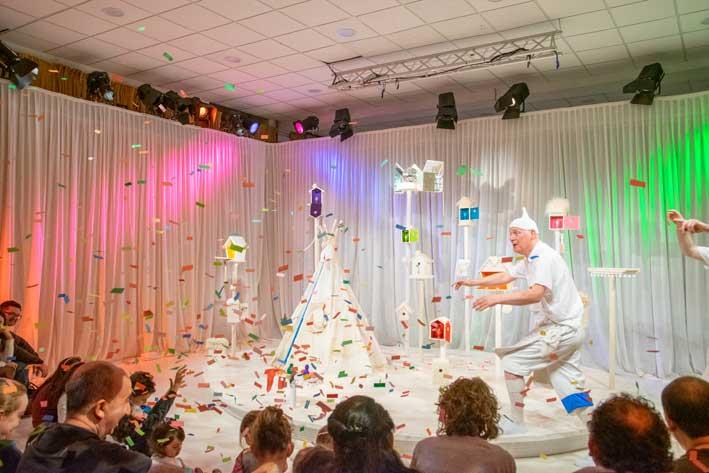The performing arts and creative arts in general not only provide opportunities for students to develop artistic passions but also teach communication, language and leadership in unique ways that inspire creative-thinking, personal empowerment and social ethics. Vital skills, which local schools are currently lacking, since the arts are not an integral part of the educational curriculum. The Malta Independent spoke to Daniel Azzopardi, to discuss the importance of the arts, and his time as the festival director as he heads into his last season at the helm.

Over the last eight years, there's no question Daniel has played an integral role in elevating the success of the ŻiguŻajg to an international level, attracting artists and delegates from across the globe. Along with his ever-growing team, the festival reaches over 20,000 attendees a year. Daniel has even had children from his early career come back as young adults and thank him for the positive influence of the festival.
"People couldn't comprehend why we would want to take on the challenge of producing an international children's festival consisting of professional productions in Malta; they just didn't see the point back then. Fortunately, awareness has developed immeasurably during my time in this post, both thanks to teachers who champion the arts and cultural leaders who push the importance of this national agenda, though I still feel we have a long way to go yet. It does make me sad that the arts aren't at the core of the national curriculum. Regrettably, arts are something that always gets pushed to the bottom. Even when we have managed to get into schools, we still face a lot of misconceptions that the subject takes the space of more traditional studies. Throughout my academic studies and experience, I have seen first-hand the incredible difference arts and creativity makes."

It's no big secret that getting kids involved in the arts and performance, in this case, can have significant payoffs in school. After all, research shows that children who sing/dance/act/play their little hearts out are four times more likely to be recognised for academic achievement compared with their non-performing friends. On top of this, they tend to have enhanced cognitive motor and social development skills to boot.
But the benefits don't end there. Daniel explains. "Participating in arts programmes help students develop a stronger sense of individualism, diverse way of thinking, self-reflection and self-esteem. Participating in these activities helps them learn to commit to a task; prepare themselves emotionally, physically and mentally and work toward the goals of mastering and sharing their skills."

The fruits of theatre aren't just for the "here and now" either. While not all students involved with the arts may plan to pursue them professionally, Daniel states that "participating in arts programmes can help them develop skills that are a growing necessity in the 21st century workplace. Participation in the arts inspires greater creativity, an increasingly valued skill in work environments - working with others as part of a creative endeavour can create stronger communication and teamwork."

Daniel's dedication to the cause of raising the importance of children's arts is something that should be deeply acknowledged and admired. ŻiguŻajg is now one of the most respected children's festivals on a global stage. The event features a great blend of some of the most iconic characters in the history of children's stories to introducing new inspiring heroes; the programme promises an encompassing experience, says Daniel. The festival offers a mix of film, puppetry, music, contemporary circus, visual arts, theatre and other multi-sensory experiences aimed at audiences from babies to teenagers. The annual event is a first of its kind in Malta to create such a legacy.
"The core nature of the festival is about this kind of wonderful inclusion," Daniel explains. "There's definitely very calculated curating and programming, but it's also bringing so many different kinds of creative forms together." The aim is diversity and inclusion. What's been paramount to our success is the fact we have involved children throughout the whole process. In our focus groups, they consult with us on everything artistic, from themes to be addressed to what they want to see. We take notice and listen - something us adults should all do more often!"
Is Daniel sad to be stepping down from a role he has shaped so eloquently? "Of course, the festival has been a huge part of my life for a very long time, I have really given it my all - but as with any creative entrepreneur, we must move on, so we don't become stagnant."